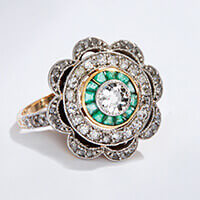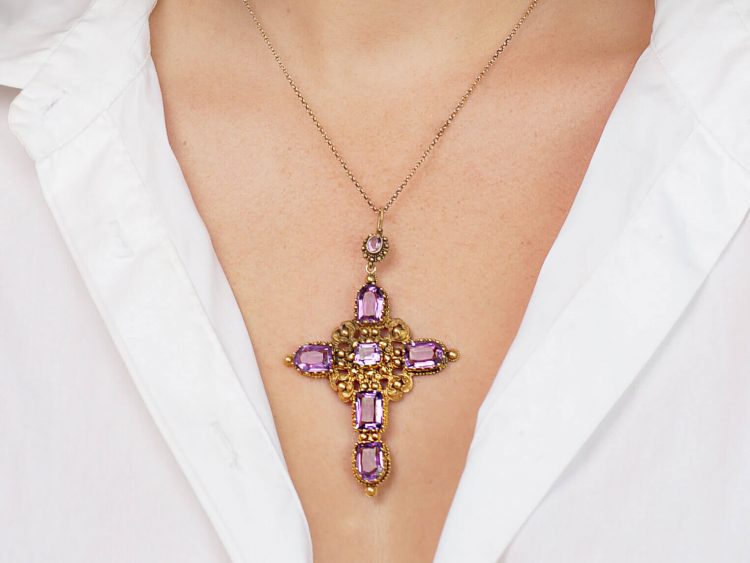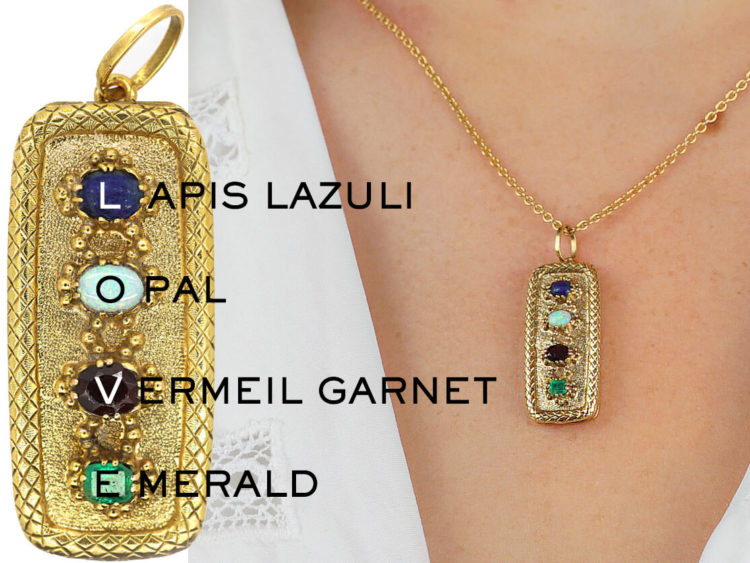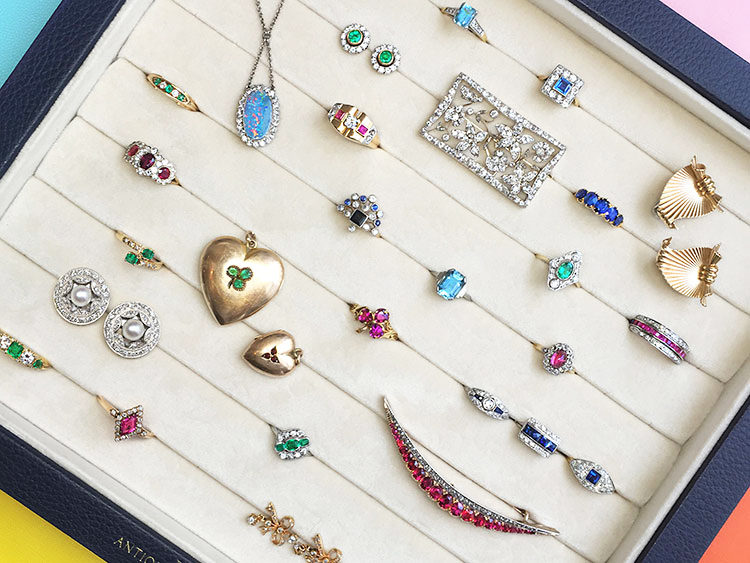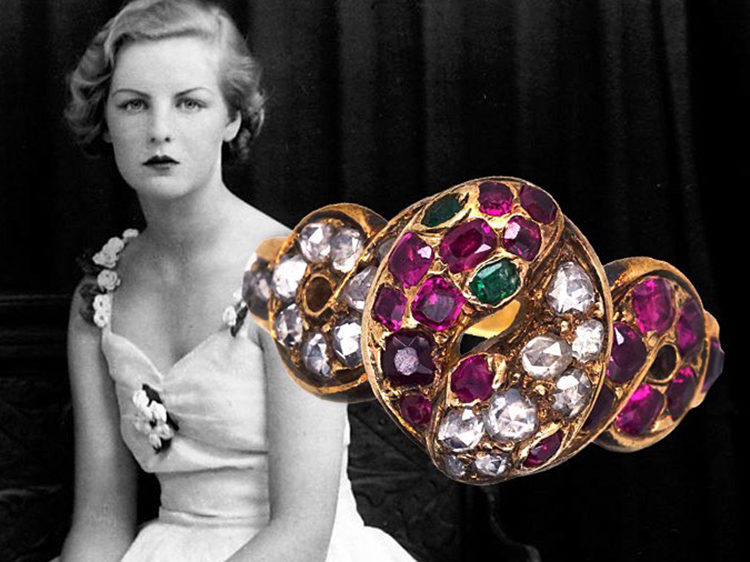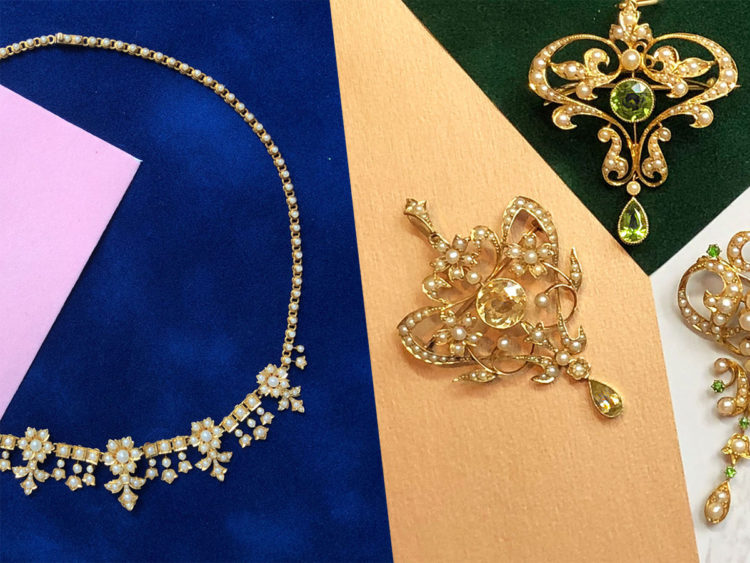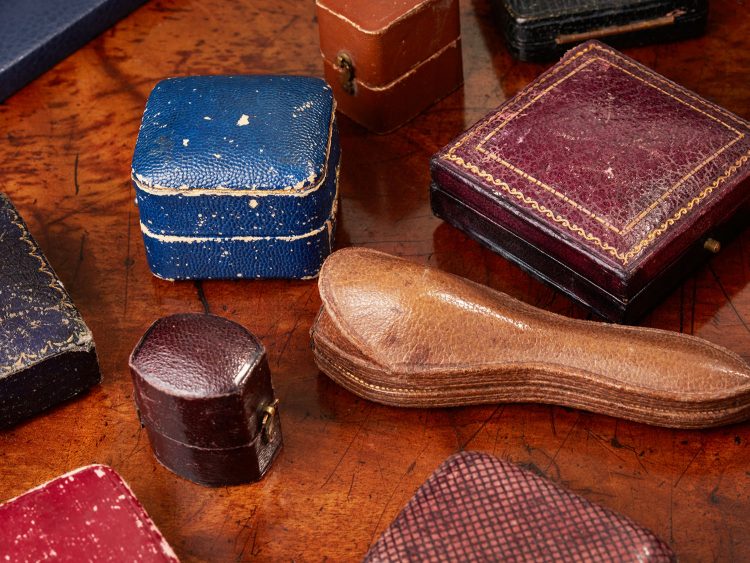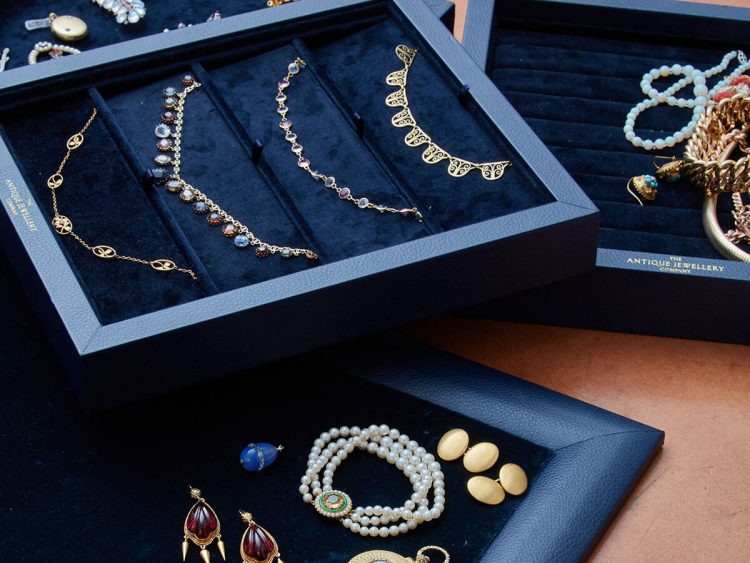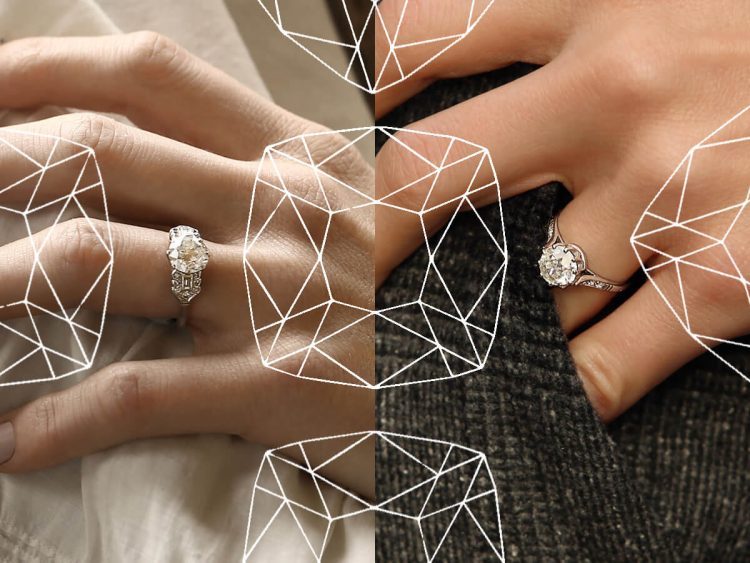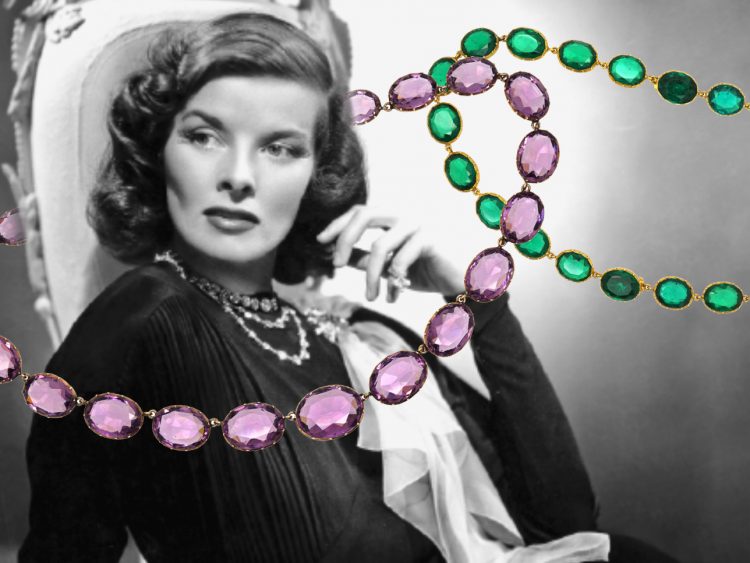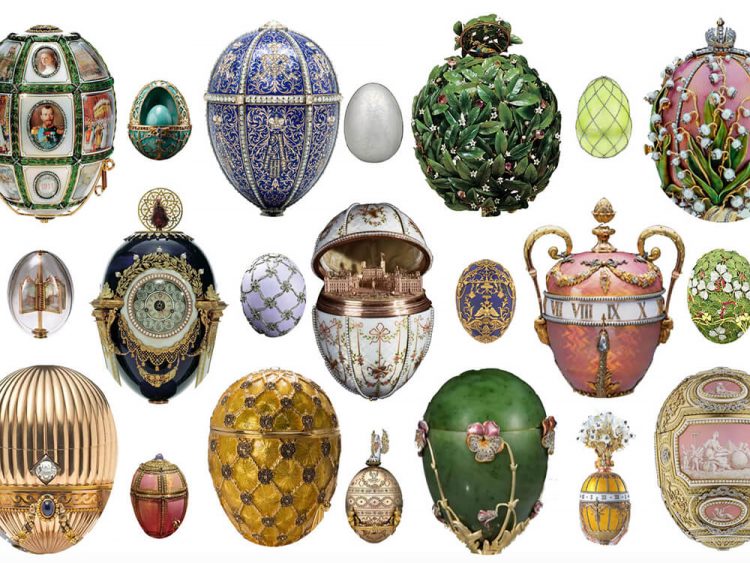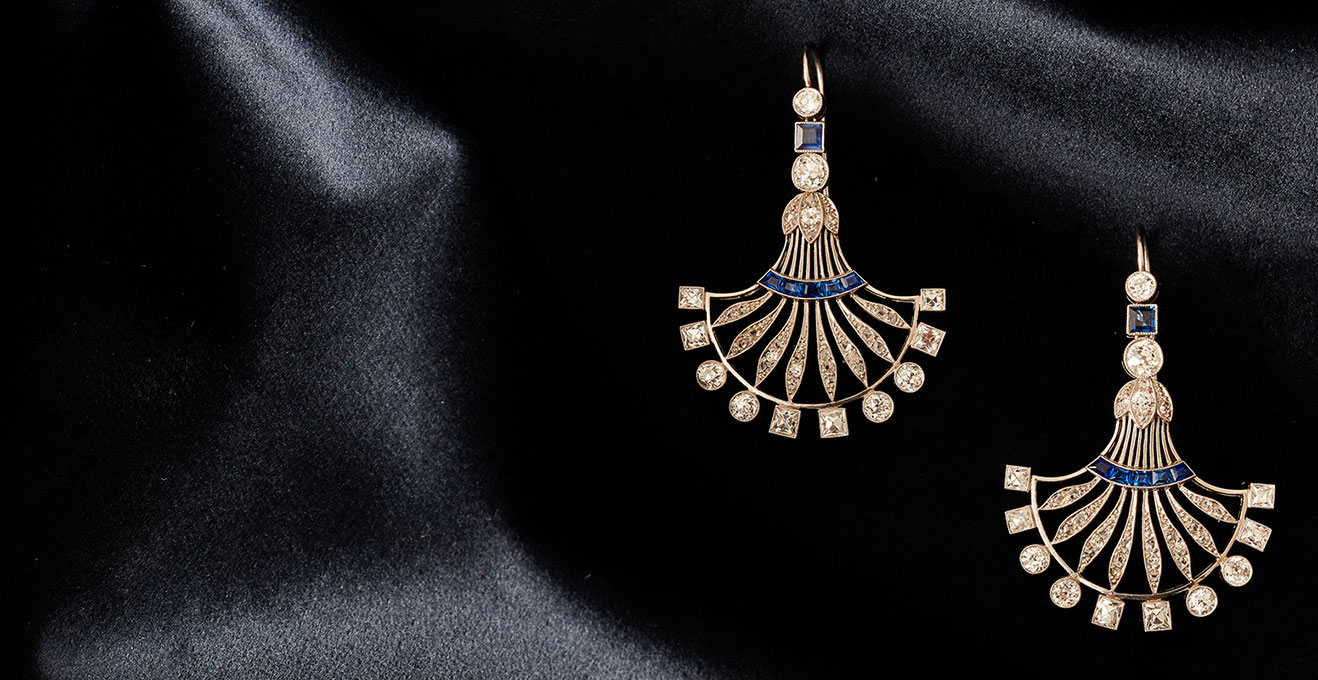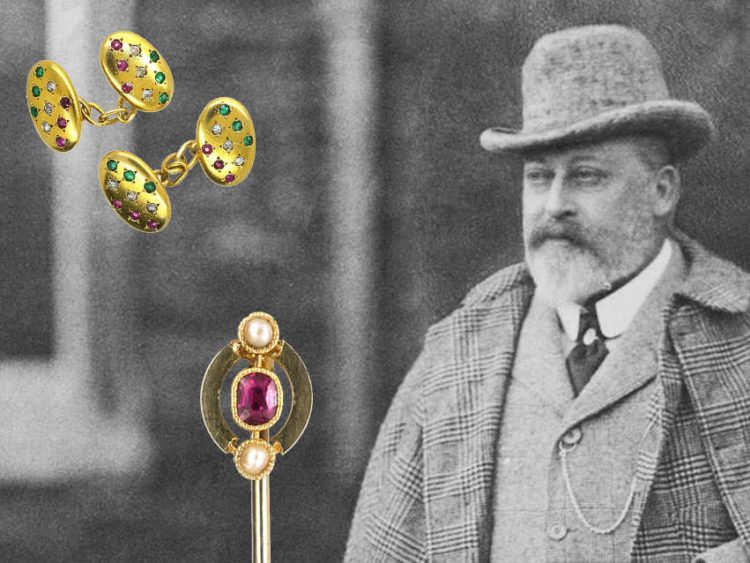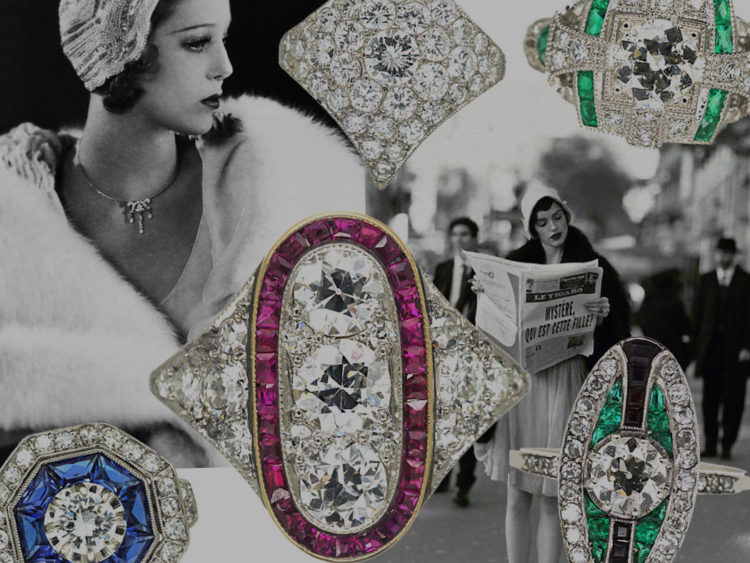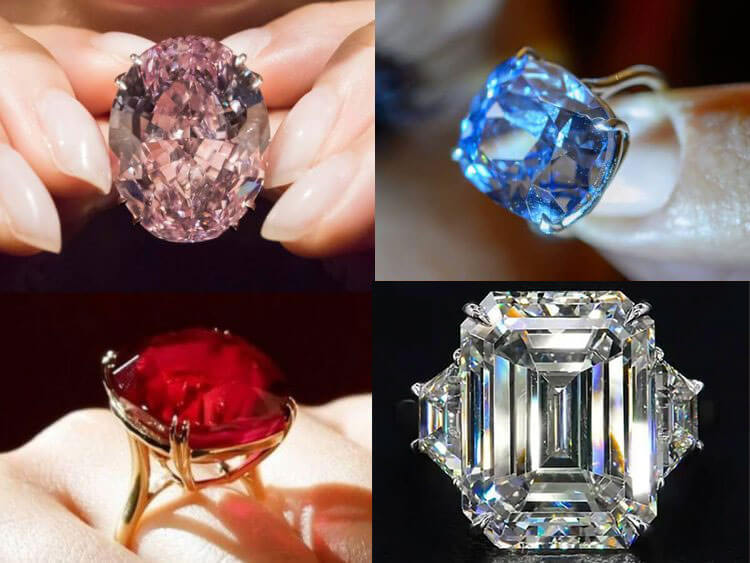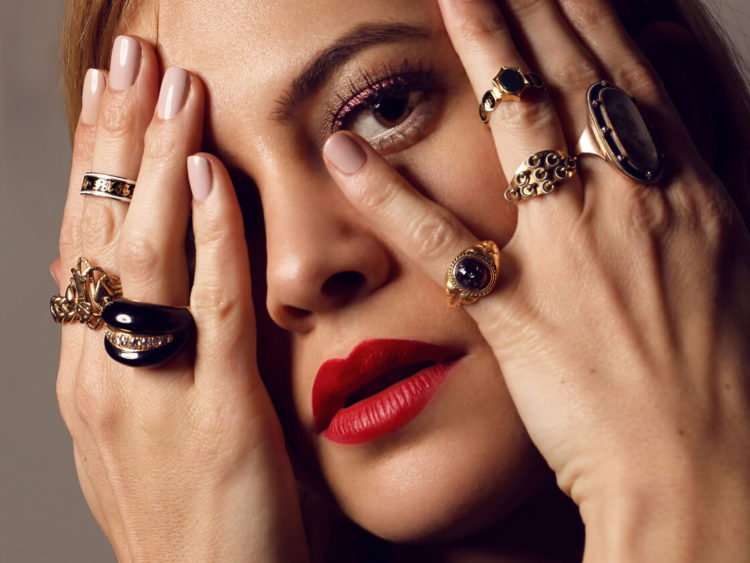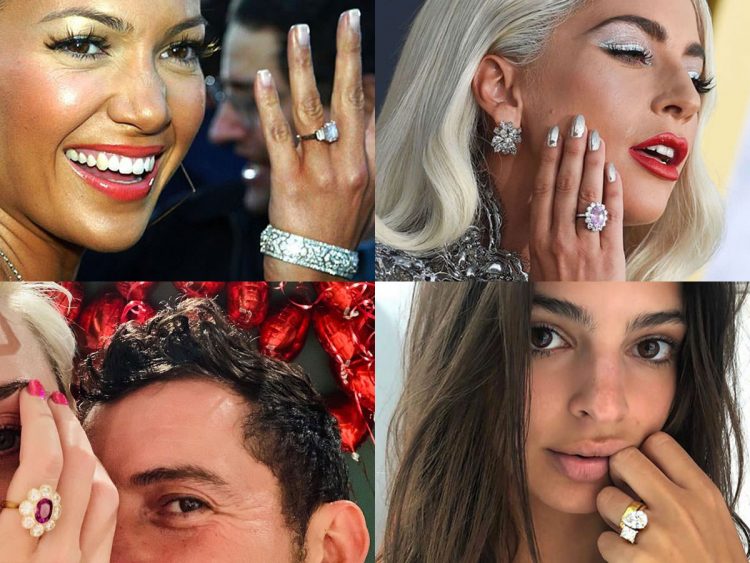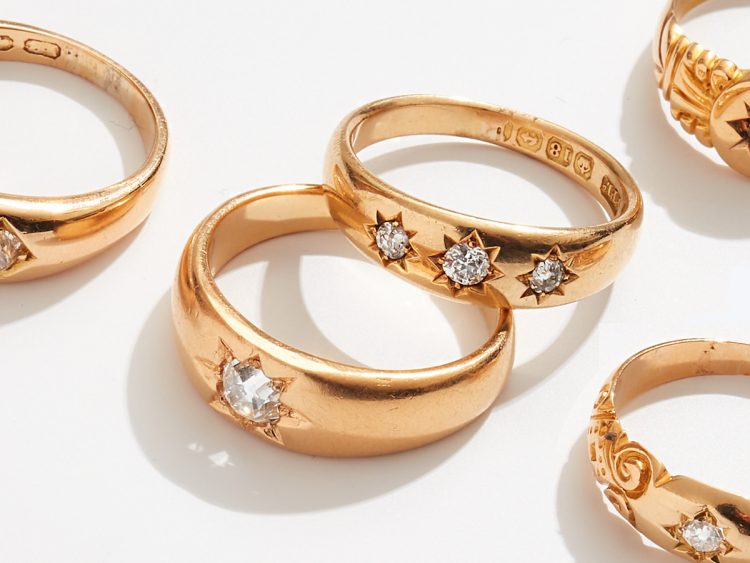-

Your Shopping Bag is empty
How to Look After and Clean Your Jewellery
Things to Avoid
Avoid wearing your antique jewellery while using corrosive cleaning products. If you would rather not be constantly removing your rings, keep a pair of rubber gloves at hand and cover up!
Don’t wear your jewellery to do the gardening (or similarly physical activity). Chances are you will not be as lucky as this lady was if anything falls off into the flower bed!
Avoid taking your most precious jewellery on holiday – specially leaving it in a suitcase or in your room – as there is a risk of losing it in transit or the prospect of it being robbed.
Don’t wear your rings in the sea! Fingers contract in the cool so they are more likely to fall off. Too many rings lie lost at the bottom of the Mediterranean awaiting keen-eyed pirates. Avoid adding to their loot by removing your jewellery before jumping in.
Do…
Take care not to drop, bash or scratch your jewellery as almost all jewellery is vulnerable to some extent.
Store your jewellery in a safe, soft environment – a fabric-lined jewellery box is ideal in order to prevent scratches.
Remove your jewellery when applying scent, or lotions and potions. Better still, put your jewellery on last when getting ready.
Polish your jewellery regularly with a soft, clean (doesn’t need to be new) cloth.
If your jewellery has been neglected and needs an industrial clean, give it to your local jeweller to revive with a polishing machine. You will be amazed at the new lease of life!
Platinum
Platinum is hardwearing and suitable to be worn every day but needs care to avoid it being scratched.
Platinum jewellery can be cleaned with mild soapy water and a soft toothbrush. (Fairy Liquid is perfect.) Dry with a soft, clean cloth.
Platinum will develop a natural patina over time which can be polished off without trouble.
Gold
Gold is the only precious metal that will not tarnish as it is free of oxides. It is not, however a particularly hard metal so care needs to be taken not to scratch it.
As a rule, the higher the gold content – which is indicated by the carat weight – the softer the metal. Try to wear pieces of a similar carat weight together in order that they cause the least possible mutual harm.
A soft, lint-free cloth is an effective way to keep gold jewellery looking its best and maintain its patina.
Gold is particularly vulnerable to harm caused by chlorine so care should be taken not to wear your gold in the pool.
Silver
Silver tends to tarnish but is less likely to discolour if it is worn regularly so don’t stash it away.
Either polish your jewellery with a clean soft cloth – a dust cloth is perfect – or soak it in warm soapy water before using a clean soft-bristle brush (such as an old toothbrush) to remove dirt.
Chlorine has an adverse affect in silver so avoid wearing it in the pool.
Pearls
As an organic material, pearls are much softer than other gemstones and can easily be scratched.
Pearls will maintain their lustre if worn regularly. Put your pearls on after you’ve applied any scent, lotions or lacquer, and wipe them with a soft cloth when you take them off as all manner of substances picked up during the day can harm them in the long term.
Get your pearls restrung relatively regularly as string will wear and stretch over time. A good pearl stringer will usually tie a knot between each pearl for security, so if one falls off you won’t lose the lot!
Keep your pearls isolated from the rest of your jewellery to avoid them getting scratched.
Do not allow chemical cleaners – especially those containing ammonia and bleach – to touch pearls, as they will destroy their lustre.
Do not expose pearls to a high heat. There is a tendency for them to crack because they are organic and have a high water content.
Diamonds
While diamonds are extremely hard, they have been known to crack and chip, particularly when in contact with other diamonds. Take care to store diamond pieces separately from each other in order to avoid them scratching against each other.
Diamonds pick up grease easily and can be cleaned using a mild soap and a soft-bristle toothbrush, or similar. Dry with a clean, soft cotton cloth.
Other Gemstones
Gemstone hardness is based on the Mohs scale, which ranges from 1 to 10, where a high number correlates to a hard stone and a lower number indicates a more fragile stone. It is important to take this into account when buying, handling and storing antique jewellery.
Softer and more fragile stones should be stored and worn with extra care in order to avoid scratches or chipping.
An accumulation of dirt and residue is inevitable if you wear your jewellery regularly. This kind of tarnish can easily be cleaned. Use the Mohs scale to help you gauge the best way to clean your jewellery. Gemstones at 7 and above on the Mohs scale can be cleaned with warm water, a splash of Fairy liquid and a soft toothbrush. For gemstones less than 7, use a soft cloth rather than a soft brush.
Take great care when cleaning emeralds (and indeed wearing them while using cleaning chemicals yourself) as they are particularly susceptible to damage and imperfections from cleaning products. Ensure your emeralds do not go through an ultrasonic cleaning device as it will have an adverse effect on the oil coating that emeralds are often given to disguise flaws.
Examples of more fragile gemstones that are vulnerable to damage by chemicals, water and even sunlight are amethyst, aquamarine, beryl, citrine, kunzite, rose and smoky quartz. In some instances, overexposure to any of those elements may lead to discolouration.
Opal, pearl and turquoise are relatively porous and should not be submerged in water for too long.



 Free Worldwide Delivery
Free Worldwide Delivery View All
View All
 Diamond
Diamond
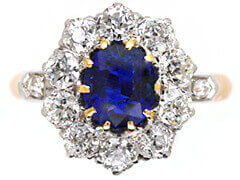 Sapphire
Sapphire
 Emerald
Emerald
 Ruby
Ruby
